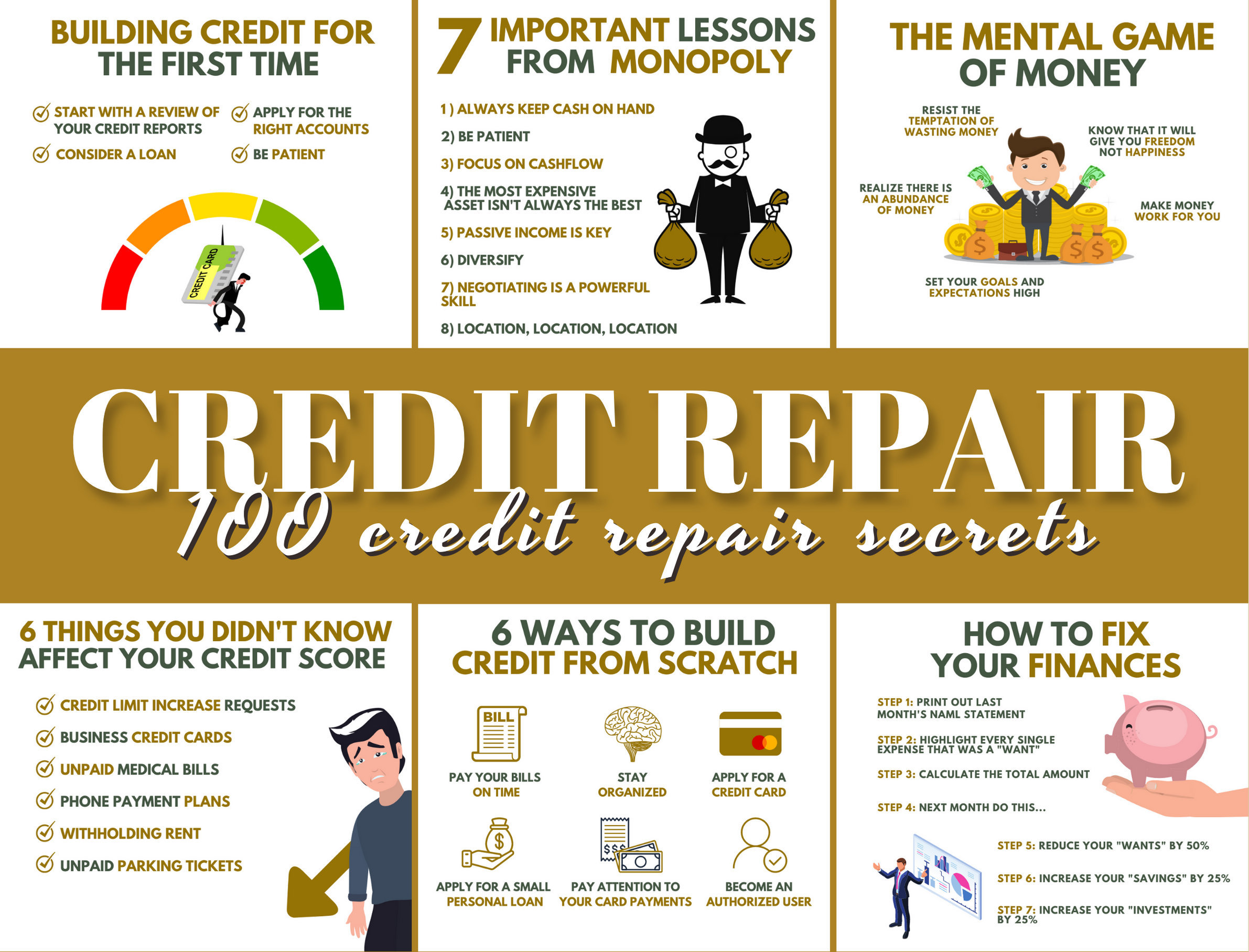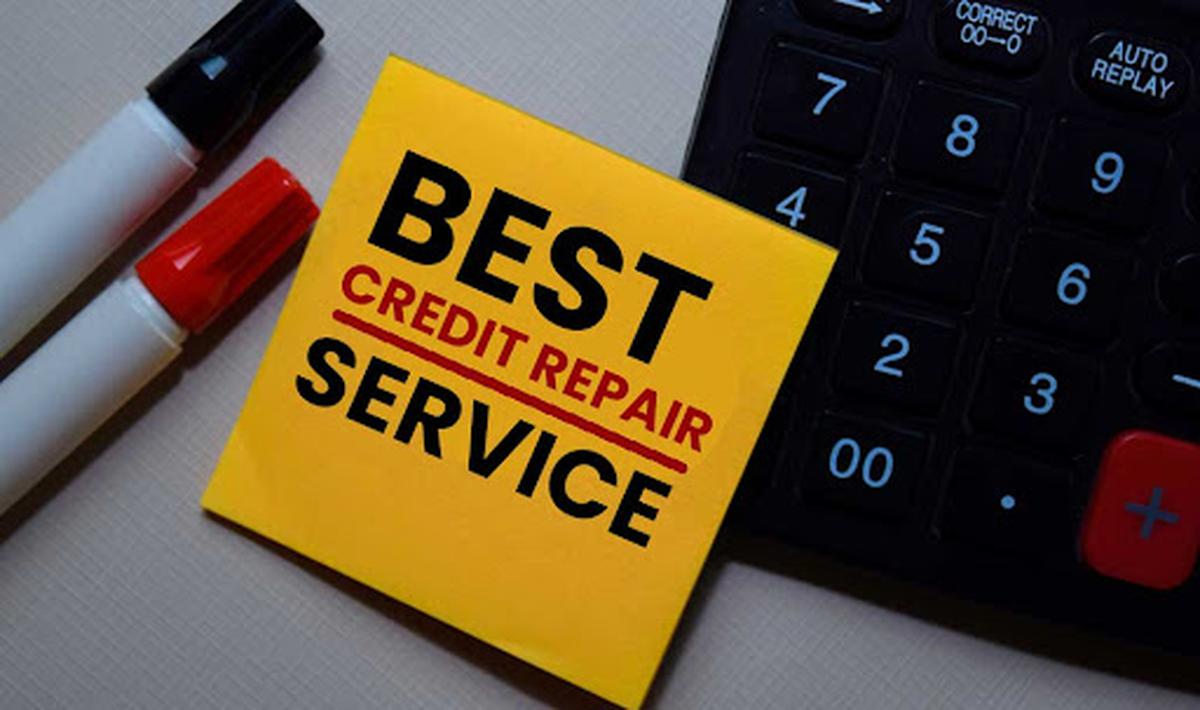Recognizing Exactly How Credit Rating Repair Service Functions to Boost Your Financial Wellness
Understanding the mechanics of credit history repair service is vital for any person looking for to enhance their financial health. The procedure incorporates recognizing mistakes in credit scores reports, contesting mistakes with credit score bureaus, and bargaining with financial institutions to deal with arrearages. While these actions can substantially influence one's credit report score, the journey does not finish there. Developing and keeping sound economic methods plays a similarly crucial role. The question stays: what certain approaches can people use to not just fix their credit scores standing however likewise guarantee lasting financial stability?
What Is Credit History Fixing?
Credit history fixing refers to the process of enhancing a person's creditworthiness by attending to errors on their credit score report, working out financial debts, and adopting better economic habits. This diverse strategy aims to improve an individual's credit report, which is a vital variable in safeguarding finances, charge card, and positive rates of interest.
The credit rating repair work process normally starts with a thorough review of the individual's credit history report, enabling the recognition of any kind of inconsistencies or errors. The private or a credit repair professional can launch disputes with credit report bureaus to correct these issues as soon as mistakes are pinpointed. Additionally, bargaining with financial institutions to clear up exceptional debts can further boost one's monetary standing.
Furthermore, taking on prudent economic methods, such as timely costs repayments, minimizing credit scores utilization, and keeping a diverse credit rating mix, adds to a healthier credit rating account. In general, credit scores repair works as a vital strategy for people looking for to gain back control over their financial health and safeguard much better borrowing chances in the future - Credit Repair. By taking part in credit history repair work, individuals can lead the way towards accomplishing their financial goals and boosting their overall lifestyle
Typical Credit Rating Record Errors
Errors on debt reports can significantly affect a person's credit history, making it essential to understand the usual sorts of inaccuracies that might emerge. One prevalent problem is inaccurate individual details, such as misspelled names, incorrect addresses, or incorrect Social Safety and security numbers. These mistakes can bring about complication and misreporting of creditworthiness.
One more typical error is the reporting of accounts that do not belong to the individual, typically because of identity theft or clerical mistakes. This misallocation can unfairly lower a person's credit report. Furthermore, late repayments may be erroneously videotaped, which can take place as a result of repayment handling errors or inaccurate reporting by lending institutions.
Credit scores limitations and account balances can also be misstated, leading to an altered sight of an individual's credit report application proportion. Out-of-date information, such as closed accounts still appearing as energetic, can adversely influence credit evaluations. Public documents, including bankruptcies or tax obligation liens, might be erroneously reported or misclassified. Awareness of these usual errors is crucial for reliable credit history management and repair service, as addressing them without delay can help people preserve a much healthier financial account.
Actions to Dispute Inaccuracies
Challenging inaccuracies on a credit rating record is a critical procedure that can aid bring back a person's creditworthiness. The very first step includes getting a current copy of your credit score report from all three significant credit bureaus: Experian, TransUnion, and Equifax. Review the record diligently to identify any type of mistakes, such as wrong account information, balances, or repayment backgrounds.
Once you have determined disparities, collect sustaining documents that confirms your claims. This may consist of financial institution declarations, repayment confirmations, or communication with lenders. Next, launch the conflict procedure by calling the appropriate credit history bureau. You can generally file disagreements online, through mail, or by phone. When submitting click here to read your conflict, clearly lay out the mistakes, offer your evidence, and consist of personal recognition information.
After the disagreement is submitted, the credit history bureau will check out the claim, generally within 1 month. They will reach out to the financial institution for confirmation. Upon completion of their examination, the bureau will notify you of the outcome. If the disagreement is dealt with in your support, they will certainly correct the record and send you an updated duplicate. Keeping precise documents throughout this process is necessary for effective resolution and tracking your credit scores health.
Building a Strong Credit History Account
Just how can people properly grow a durable credit profile? Building a solid credit rating profile is important for securing beneficial monetary chances. The foundation of a healthy credit scores profile begins with prompt costs settlements. Continually paying charge card costs, loans, and other obligations on schedule is essential, as payment history dramatically influences debt ratings.
Furthermore, keeping low credit scores utilization proportions-- preferably under 30%-- is crucial. This means maintaining bank card balances well listed below their limits. Branching out credit scores kinds, such as a mix of revolving credit (charge card) and installment loans (automobile or home loans), can also improve credit profiles.
Routinely checking credit history records for errors is equally essential. People need to review their credit report records at the very least yearly to determine disparities and challenge any errors immediately. In addition, avoiding excessive credit history queries can protect against potential negative effect on credit report.
Lasting Advantages of Credit Rating Repair Work

Additionally, a stronger credit account can help with far better terms for insurance coverage premiums and also influence rental applications, making it less complicated to protect real estate. The mental advantages ought to not be overlooked; people who effectively repair their click to investigate credit commonly experience decreased stress and anxiety and enhanced confidence in handling their finances.

Conclusion
In final thought, debt repair service serves as a vital device for improving financial wellness. By recognizing and contesting inaccuracies in debt records, individuals can fix errors that adversely affect their credit report scores.

The long-term benefits of credit history fixing expand much past simply boosted credit rating scores; they can considerably enhance an individual's overall financial health.
Comments on “Unlock Financial Freedom: Your Comprehensive Guide to Credit Repair”